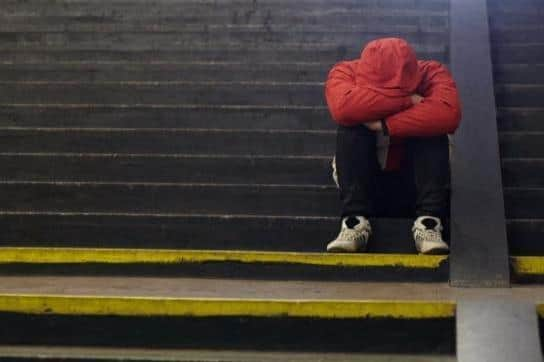'Ignored and abandoned' families struggling to protect kids from ruthless gangs
The Commission on Young Lives compiled the report after it interviewed families who said they did not know where to turn, when they found knives, burner phones or cash in their childrens’ bedrooms, and were left “feeling powerless as bad situations become increasingly out of control”.
Families said they felt "ignored and abandoned" and criticised the slow response of some agencies and the “blizzard of bureaucracy and assessment forms”.
Advertisement
Hide AdAdvertisement
Hide AdSeveral parents said they had been forced to become “instant experts” navigating issues around grooming and resorted to paying off their child’s “debt bonds” to gangs or even quitting their jobs to watch over their kids.


The commission, which comprises a panel of child safeguarding experts, found that 10 years ago county lines drugs gangs “almost entirely involved” children who were in care or had vulnerable parents, but a growing number of middle class kids are now being targeted.
It also said there are now “too few examples of long-term, intensive support” being offered to families and massive funding cuts for services over the last 12 years, such as the Sure Start children’s centres, have proved to be “a historic mistake”.
The Government has promised to spend £492m on early help services, but the commission highlighted research published by the House of Lords which found spending on early intervention support in areas of England with the highest levels of child poverty fell by 53 per cent (£766m) between 2010 and 2019
Advertisement
Hide AdAdvertisement
Hide AdFormer children’s commissioner Anne Longfield, who chairs the commission, said it has become “easy” for gangs to exploit children and a new system of support is needed to ensure social workers, schools, charities, the police and other safeguarding specialists can “fight back”.
“The conveyor belt of vulnerable children available to county lines gangs, and abusers will continue to roll on for as long as there is a fractured, piecemeal and variable support, where families don’t know where to turn," she added.
"I want government to understand that families are our biggest weapon in fighting gangs, so let's get behind them and give them the support they need to protect their own kids."
The commission said children who have special educational needs or have been excluded from school are particularly vulnerable to exploitation, while black boys are disproportionately affected. A range of issues at home, such as poverty, domestic violence and drug abuse, can also put a child at greater risk of being groomed.
Advertisement
Hide AdAdvertisement
Hide AdSocial workers found 12,720 kids in England were involved in gangs in the year ending in March 2021
The report stated: “Those that are seeking to exploit teenagers need a steady flow of vulnerable young people to support their business models and know that involved parents and families can make it harder for them to get to and groom children.
“That is why they work so hard to drive them apart with a constant drip feed of doubt, secrecy and criticism, where parents are cast as a problem and hindrance.”
It added: “We heard how parents are struggling to get the help they need when things begin to get out of hand and/or when things reach crisis point: when they find that burner phone, or unexplained amounts of money, or knives in their children’s bedrooms.”
Advertisement
Hide AdAdvertisement
Hide AdThe commission has recommended the introduction of legal duties for local agencies to provide early support.
It also said the Government should provide councils with the same level of funding for early intervention as it did in 2010, roll out ‘Family Hubs’ in every disadvantaged area of the country and trial a ‘Teenager in Need programme’ which provides families with intensive support.
A five-year extended programme of specialist support for children at risk of exploitation should be developed, the commission added, and families must always be involved in decision-making about their support.
A Department for Education spokeswoman said: “We recognise many vulnerable young people face new and growing risks, which is why we are creating a network of Family Hubs so parents can access important services for them and their children, as well as increasing funding for our Supporting Families programme to help the most vulnerable build a better future.
Advertisement
Hide AdAdvertisement
Hide Ad“We are also providing £1.5m to help councils and other safeguarding agencies strengthen their approach to protecting adolescents at risk of exploitation, and our specialist Alternative Provision and SAFE taskforces, backed by £45m, are working to keep these young people engaged in their education and to prevent them becoming involved in crime.”
